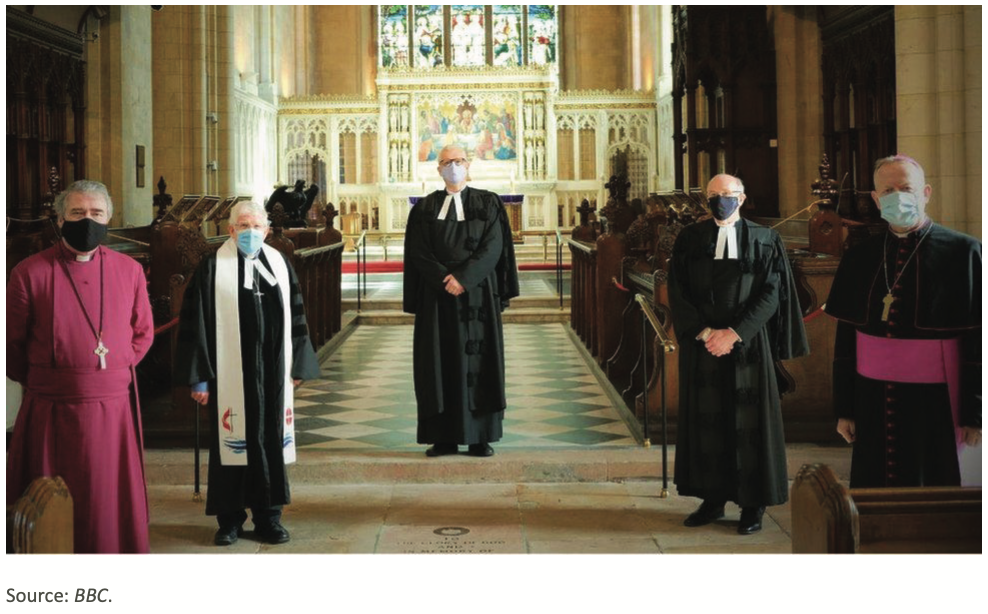
“Despite a history of sectarian strife, cooperation between the leaders of the Roman Catholic and Protestant churches in Ireland has deepened in recent years, with the churches increasingly speaking with one voice on important social and political issues,” writes Ger FitzGerald in the online magazine The Conversation (October 19). FitzGerald reports on the Church Leaders Group, which has brought “together the top leaders of the Catholic, Anglican, Presbyterian and Methodist churches in Ireland—whose jurisdictions extend across the whole island—as well as the president of the Irish Council of Churches.” Since the passing of Brexit and the pandemic, the five church leaders have been coordinating more closely than ever on these and other issues. Observers note that the churches’ increasing cooperation is not due to their diminishing size or influence. In fact, despite Ireland’s history of political and religious conflict, relations between the churches have always been collegial. The recent increase in ecumenical activities has rather been nudged along by a new generation of church leaders who grew up during the three decades of Northern Ireland’s political violence known as the “Troubles” and who share concerns over current issues. FitzGerald cites a recent analysis by Queen’s University that found interchurch cooperation at the national level to be “more frequent and united during the pandemic than at perhaps any other time in Irish church history.”

The combination of increasing political pressures with the convenience of the virtual meetings that resulted from Covid restrictions has also brought church leaders together more frequently. While the 1998 Good Friday Agreement ended most of the violence associated with the Troubles, the pact had also introduced a form of power-sharing called “consociationalism,” which, although intended to maintain social peace in religiously divided societies, can also entrench division and make it more difficult to overcome. This can be seen in Northern Ireland’s educational system, where more than nine in 10 children are in schools segregated by religion, although the majority of the public now supports integration. The UK’s withdrawal from the European Union has returned the border to the center of politics, with Northern Ireland remaining aligned with the EU, something that has angered Protestant unionists. The Church Leaders Group, quick to see that Brexit could threaten the fragile peace, collaborated on a consultation document to brief local congregations and interchurch groups on the withdrawal’s likely impacts. With the centenary this year of the partition of Ireland likely to generate more heat and division, the Church Leaders Group has stressed unity, issuing a joint message acknowledging how, in the words of Eamon Martin, the Catholic Archbishop of Armagh, “Too often we have been captive churches, not captive to the word of God but to the idols of state and nation.”
(The Conversation, https://theconversation.com/a-century-after-partition-irelands-churches-are- cooperating-more-closely-than-ever-169068?)